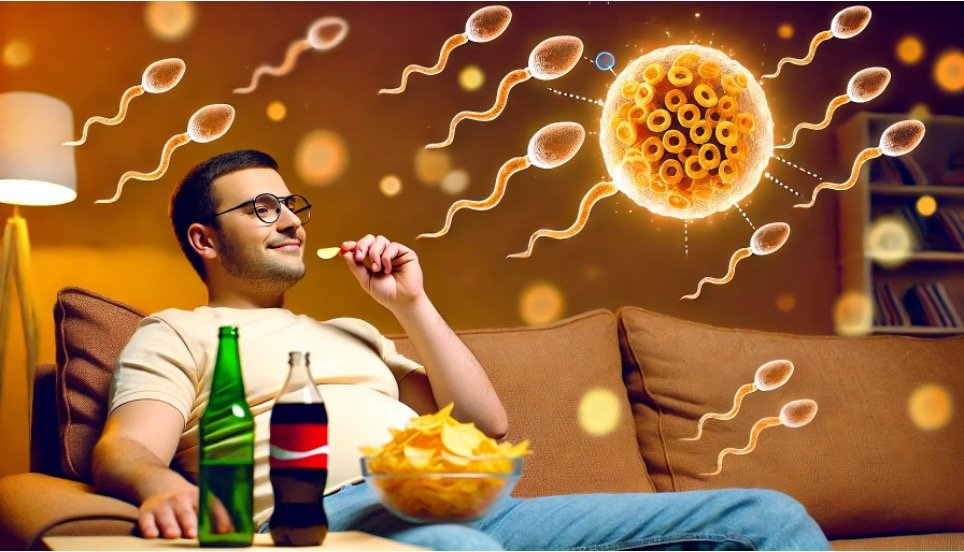
Can Father’s Diet Shape His Child’s Health?
Have you ever wondered how a father’s diet might influence the health of his future children? Recent research led by Dr. Raffaele Teperino at Helmholtz Munich has uncovered some fascinating and surprising answers.
The Father’s Diet and Its Hidden Influence
Picture this: a father-to-be, enjoying his favorite high-fat snacks. What he might not realize is that his diet before conception could impact the health of his children in significant ways. This isn’t just about passing down genes; it’s about tiny molecules in his sperm that play a crucial role in his child’s future well-being.
The Study’s Journey
Dr. Teperino and his team delved deep into this mystery using data from over 3,000 families as part of the LIFE Child cohort. They discovered that a father’s weight and diet before conception could influence his children’s weight and their risk of metabolic diseases, like diabetes and obesity. This effect was found to be independent of the mother’s health, genetics, or environmental conditions.
Mice and the High-Fat Diet Experiment
To confirm these findings, the researchers turned to mice. They fed male mice a high-fat diet and observed changes in their sperm, specifically in a region called the epididymis where sperm matures. The result? The offspring of these high-fat diet mice were more prone to metabolic diseases.
But why was this happening? The key lies in tiny molecules known as mitochondrial tRNA fragments (mt-tsRNAs) found in sperm. These molecules were shown to carry information that influences how genes are expressed in the early stages of an embryo’s development.
The Human Connection
What about humans? The study found similar results. Sperm from overweight fathers had different mt-tsRNA profiles compared to those from lean fathers. These RNA fragments are transferred to the egg during fertilization, affecting the child’s early development and long-term health.
A Call for Preventive Health
So, what does this mean for future dads? This research highlights the importance of a healthy diet and maintaining a healthy weight before conception. It suggests that taking care of one’s health isn’t just about the individual—it’s about the next generation too.
The Bigger Picture
Mitochondria, often called the powerhouses of our cells, have their own DNA, usually inherited from our mothers. However, this study shows that fathers also contribute to mitochondrial function through these small RNA fragments in sperm. These fragments help regulate gene expression, playing a crucial role in the early development of embryos and influencing the child’s future health.
Conclusion: A Healthier Start for Future Generations
Dr. Teperino’s research provides a compelling reason for men to adopt healthier lifestyles before becoming fathers. By focusing on diet and body weight, future dads can help ensure better health outcomes for their children. It’s a powerful reminder that the choices we make today can have lasting effects on our families’ futures.


